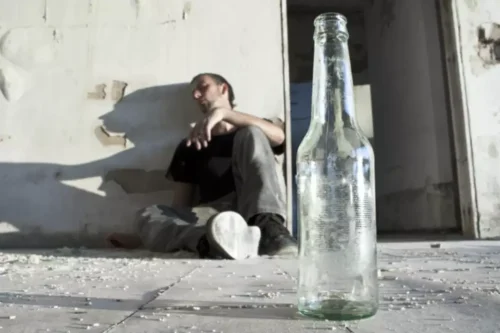
The test is free, confidential, and no personal information is needed to receive the result. One of the greatest fears of going to rehab is relapse — a sign of “failure.” However, relapse is so common that it’s considered a part of lifelong recovery for some people. If your loved one expresses a desire to quit, or has tried to quit multiple times but cannot, it is a sign that he or she should find a drug rehab center. The thought of going to drug rehab can be a tough pill to swallow, for addicts and their loved ones alike.
Making The Decision To Go Back To Rehab
Many people also fall into the trap of making changes only regarding drug or alcohol use, while ignoring other necessary lifestyle changes. It’s helpful to know how much your insurance covers, along with co-pays and deductibles. Taking a bit of time to go over these details can ensure you’re not surprised by expenses nor left worrying about finances during treatment. Your doctor will work with you to put together a personalized plan to manage heart palpitations and improve your heart health.

Relapse Risk Factors

Relapse doesn’t mean the treatment program didn’t work — it simply means the treatment plan needs reinforcement or adjustment. Falling back into old habits is easy, as it’s a common response to cravings, boredom, triggers and doubt. As long as someone that expensing a relapse recognizes the lapse, taking action, returning to rehab, and adjusting their recovery plan is key and can lead to long-term sobriety. Relapse can happen for a number of reasons and going back to rehab opens the door to improve the recovery plan and take new steps towards sobriety. This lack of self-recognition and process of self-discovery can be overwhelming and be further weighed down by the typical feelings of shame and guilt that are common in recovery.
What Is Relapse?
”, or looking for reasons to push your loved one forward, you are in the right place. Below, Turnbridge explores some of the most common (and most worthwhile) reasons to go to rehab for a substance problem. Because programs vary in their philosophies and treatments offered, finding a center that takes a different approach than the last one you went to may produce better results. In the event that a slip has occurred, you can usually get back on the right track by going to a meeting, discussing the slip with a sponsor or a counselor and avoiding your triggers. Seeking support and redoubling your efforts to remain sober are imperative. Relapse rates among recovering alcoholics are between 50 and 90 percent in the first four years after rehab.
Take Our Substance Use Self-Assessment

That said, when a person is battling an issue like depression or anxiety, and starting to dabble with drugs, it is important to seek help. If a person is addicted to drugs and starts developing depressive, anxious, or other mental health symptoms, it is important to find a professional rehab that is experienced in co-occurring disorders. It may take more than one conversation for your loved one to agree to seek help. After that, it may take time before they find a treatment facility or healthcare professional to fit their specific needs.16 Go into the process with patience. If you need help with your recovery, our Pompano Beach treatment center offers telehealth addiction services that include individual counseling that can help you stay on track. The sooner you take steps to intervene following a relapse, the easier it is to get back on track.

It can feel as though your heart is beating too fast, too forcefully or at an irregular pace. Heart palpitations can start at any time – during normal activities, exercise, eating and even resting. You may also notice them more when lying in bed because there are fewer things to distract you. Also, if you are lying on your left side, the heart is closer to the chest wall, and you may be more aware of them.

You find yourself considering whether or not a return to rehab is a good idea.
These include techniques such as avoiding situations that trigger cravings or implementing better stress management tools. However, remember that it’s not always possible to prevent relapse, so promise yourself that you’ll seek treatment as soon as possible at a rehab facility if it does occur. Having experienced a period of sobriety before, recovering addicts often leave their second stint in rehab more dedicated to their recovery and determined to sustain that for a lifetime. Going back to rehab after a relapse will give you your best chance at achieving a lasting recovery according to research.
Should You Go Back to Rehab?
- The friendships and connections formed in rehab can be instrumental in your recovery journey.
- People may make an informed decision that is in line with their goals for long-lasting change and a brighter future by consulting with addiction specialists, therapists, and a solid support network.
- For some, it might be seeing people with whom they previously used.
- According to the model developed by Marlatt and Gordon, a relapse begins with a high-risk situation that is followed by a poor coping response.
Keep reading to learn why people go to rehab, the benefits that treatment programs can offer you or your loved one, and how to decide when to go to rehab. But treatment is vital to your mental, emotional, and physical health. And any employer that truly cares for its employees will likely be willing to make accommodations for your treatment.
Medical Billing Services: Streamlining Revenue Cycle Management for Healthcare Providers
- Plus, the Wage and Hour Division of the department, which has various offices throughout the country, can answer further questions.
- Many feel that their addiction is not “bad enough” to go to rehab, so they wait it out.
- Furthermore, many treatment centers and facilities offer alumni programs that allow program graduates to stay involved.
- Many people also fall into the trap of making changes only regarding drug or alcohol use, while ignoring other necessary lifestyle changes.
- This is because people who battle addiction often lie to, deceive, or manipulate those closest to them.
- Relapse should not be seen as a failure of treatment but rather indicates a need to resume, modify or change treatment—this might mean going back to rehab a second time.
Waking up every day feeling like no one understands your struggles and that you are alone is excruciating. Loneliness is also one of the most common relapse triggers that our Pompano Beach drug rehab warns our clients about, and, unfortunately, it is common going back to rehab among those who are newly sober. Relapse and multiple rounds of treatment are not abnormal for those struggling with an addiction. It’s an opportunity to learn about how one has changed and how treatment needs to be adjusted.


Claim Free Play with the 1xBet Free Promo Code
유로247가입코드
Claim Free Play with the 1xBet Free Promo Code
아이디판매
Claim Free Play with the 1xBet Free Promo Code
اجاره خودرو در شیراز
Plinko's Use of Predictive Analytics at Stake UK Casino
UFAAUTO789
Plinko's Use of Predictive Analytics at Stake UK Casino
UFAAUTO789